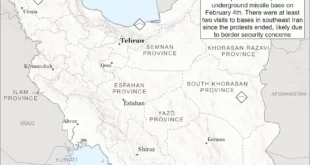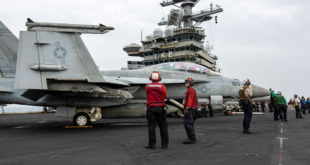With Libya at the helm, and Iran, Cuba and Pakistan among the 20 nations participating, a United Nations-convened meeting in Geneva next week will begin to lay the groundwork for a global conference on racism in 2009. A preparatory bureau set up under the UN’s Human Rights Council will “formulate a concrete plan” for the 2009 conference, which aims to review the implementation of a program of action drawn up at the UN’s last big racism gathering in 2001 – the 2001 World Conference against Racism, Racial Discrimination, Xenophobia and Related Intolerance.
That conference, in Durban, South Africa, was characterized by blatant anti-Israel sentiment and attempts to revive an earlier UN stance equating Zionism with racism. An associated Non-Governmental Organization Forum was also highly politicized, with Israel again the target.
The Bush administration first sent a low-level delegation, and later recalled it to protest what then-Secretary of State Colin Powell called a singling out of one nation “for censure and abuse.”
The final declaration and program of action, hammered out amid acrimonious debate, made reference to “the plight of the Palestinian people under foreign occupation” but did not directly condemn Israel.
In the run-up to the 2001 conference, Asian nations led by Iran inserted into draft documents references to the Israeli-Palestinian conflict, including the facts that Israel was a threat to international peace and security and was practicing a “new kind of apartheid.”
Washington and Tel Aviv, as critics of that process, are concerned that, with countries like Libya and Iran in the driving seat again, the 2009 conference may end up with a similar focus.
They also expect “Islamophobia” to feature strongly, and for Islamic states to attempt to revive efforts to outlaw the “defamation of prophets” – a push triggered by Prophet Mohammad’s cartoon controversy.
The preparatory bureau meeting, due to run from Aug. 27-31, will decide on dates, venue, participation and objectives of the 2009 conference, as well as regional initiatives running up to the main event.
According to UN Watch, a Geneva-based organization that monitors the world body’s activities there, the 20 members of the planning group named by the Human Rights Council are Argentina, Armenia, Belgium, Brazil, Cameroon, Chile, Croatia, Cuba, Estonia, Greece, India, Indonesia, Iran, Libya, Pakistan, Norway, Russia, Senegal, South Africa and Turkey.
 Eurasia Press & News
Eurasia Press & News



